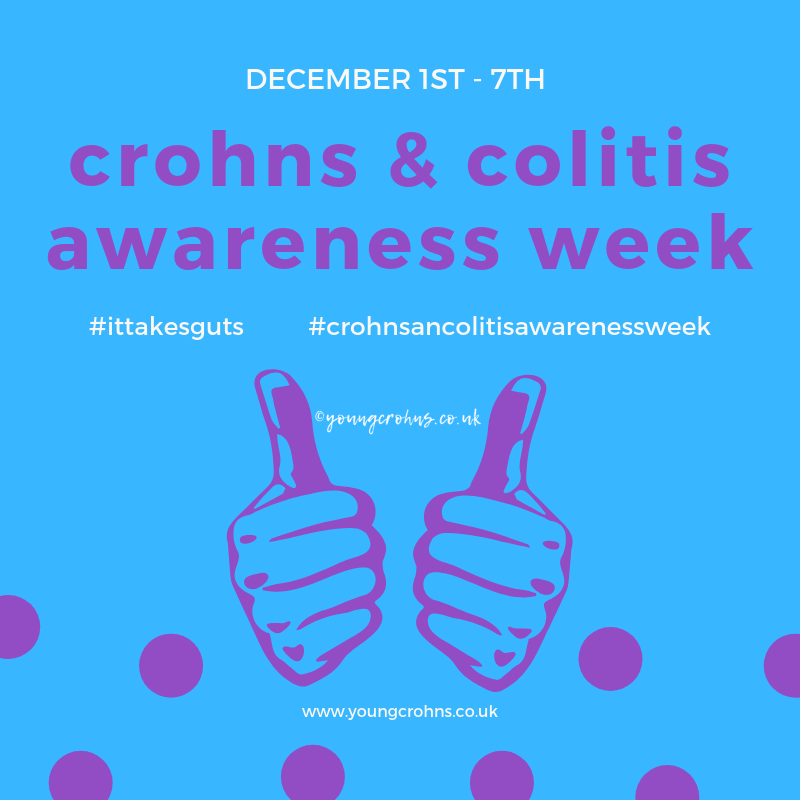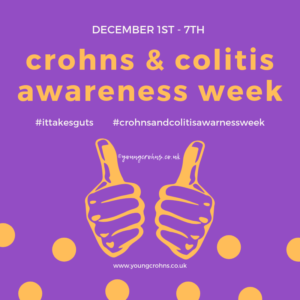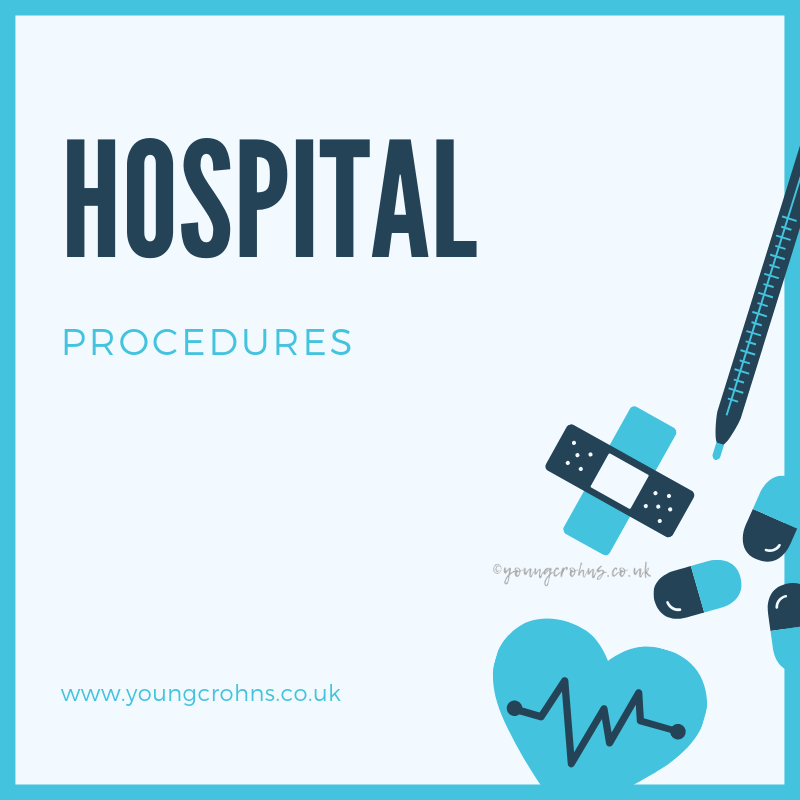
Crohns & Colitis Awareness Week – December 2nd: IBD Stigma
Part of the week of daily blogs for #crohnsandcolitisawarenessweek Read the entire week here.
What does having IBD mean?
It means talking about poo.
It means discussing bodily functions with specialists.
It means enduring testings on your digestive system. These are not great experiences, no matter how long you have been diagnosed or how many you’ve had to go through.
It means getting diagnosed. It means having a conversation with a Gastroenterologist or an IBD nurse about your condition and what they intend to do to treat it, in whatever status it’s in.
It means taking medications – some of which can cause some pretty serious long-term side effects, let alone the expected side effects. Nothing is perfect, and you take these because you want to get better, you want to fight and you want to do what is needed.
But you have an invisible illness. You have a chronic disease which needs monitoring by a specialist team. If you have been diagnosed when you were young, it is not what you expected. You don’t want to be this young and ill with something so serious.
It takes a while to accept that this is lifelong and you make your peace. But you still have something that no-one can really see. It all happens inside. We don’t know exactly why yet either, so you don’t know what you’ve done wrong. You don’t know how to really explain your condition to others around you; sometimes your family and friends won’t get it. They won’t understand why you still. run to the toilet or why you’re always tired. They won’t understand why a change in diet won’t cure it, or why you have to take strong medications to control something inside of you. They don’t understand why you have to constantly see a doctor or why you get admitted when you were fine a couple of days ago.
They don’t understand the unpredictable nature of what you have and how sometimes you are just at its mercy.
But they also won’t understand all the people who have your disease who get what you mean when you get frustrated with people who come into work sick when you’re on immunosuppressants. Those other people will get it when you look for the bathrooms in a public space. They will get it when you talk about your poop and your experiences with medications, hospital and procedures. These people will get you, by just having what you have.

There is so much stigma about having an invisible illness because it is exactly that – invisible. It’s hard to show how your insides are when outside you look okay. And looks can be deceiving – we can smile and be in incredible pain. We can go out and act like everyone else but we are tired and sore. A face of makeup or a smile and happy attitude don’t tell you the hours spent not sleeping and being in the bathroom instead. It does not show you the amount of medications you have to take in order to go out. It doesn’t show the planning of knowing bathrooms and watching what you eat to avoid any mishaps away from home. It’s invisibility is a gift and a curse.
Misconceptions come from IBD being so close to IBS – this goes beyond just some digestive issues; IBD affects all parts of the body – thankful not all at once! – but it is a multidimensional beast sometimes. Joints, tiredness, liver problems, eye issues, skin problems, fistulas and abscesses, weight gain and weight loss. It’s just a rollercoaster.
There are so many good people raising great awareness of these conditions and breaking down the stigma attached to having IBD. The work. so far has gotten us this far, it needs to continue. We need more, we will always want more; to do more, to say more, to be more honest and real, to share and ‘promote’ IBD.
Do you have any questions or queries? Or just want to share your own experiences? You can leave me a reply here or leave comments via my social media accounts – on Twitter, find my blog page on Facebook and over on Instagram

Sources:
Crohn’s and Colitis UK – About Inflammatory Bowel Disease – Involving IBD Patients
Further Reading:
National Centre for Biotechnology Information (NCBI) – Impact of Perceived Stigma on Inflammatory Bowel Disease Patient Outcomes
American Journal for Gastroenterology (AJG) – Concerns of Patients with Inflammatory Bowel Disease: Results from a Clinical Population
Crohn’s and Colitis UK – The Great British Cover Up: Workers Fear Stigma over Invisible Health Conditions
British Society of Gastroenterology GUT – Stigma in Inflammatory Bowel Disease: Building Resilience




1 Comments
Crohn's and Colitis Awareness Week • Young Crohns
23/02/2022 at 15:16
[…] & Outlook Crohns & Colitis Awareness Week – December 1st: What is IBD? Crohns & Colitis Awareness Week – December 2nd: IBD Stigma Crohns & Colitis Awareness Week – December 3rd: IBD and Mental Health Crohns & […]